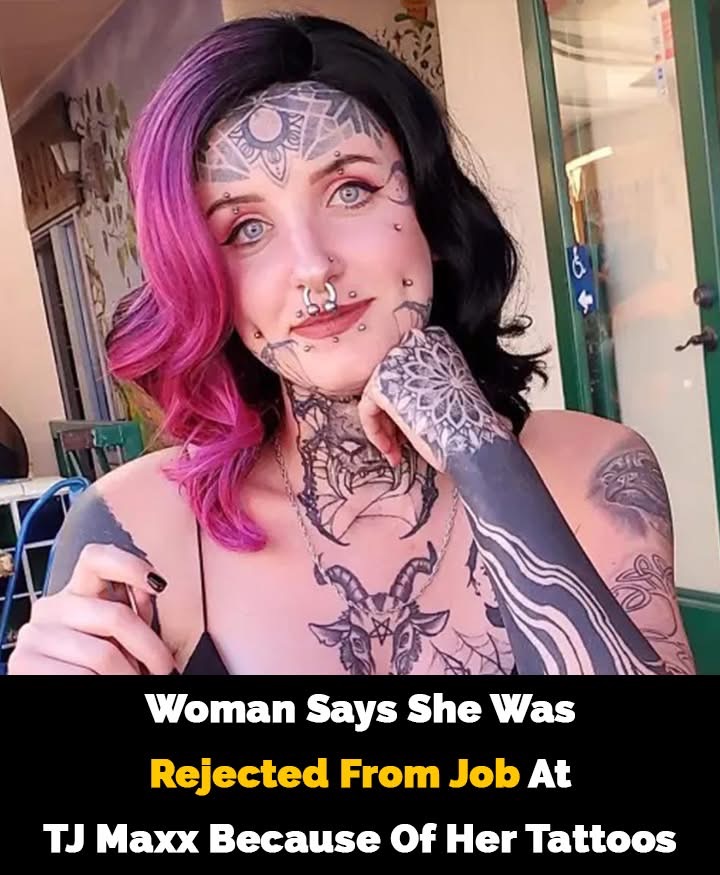
Exploring the intersection of body art and employment opportunities.
Introduction
In today’s evolving workplace, the balance between personal expression and professional expectations remains a hot topic. A recent incident involving a heavily tattooed woman denied a retail position has reignited discussions about appearance-based biases in hiring.
The Viral TikTok Revelation
Job rejection leads to a social media outcry.
Ash Putnam, a 24-year-old with prominent facial tattoos, took to TikTok to share her experience after being rejected for a position at TJ Maxx. In her video, which garnered over seven million views, Putnam expressed frustration over receiving an automated rejection email without an interview opportunity.
Confronting the Hiring Manager
Seeking clarity on the decision-making process.
Determined to understand the reasons behind her rejection, Putnam visited the store to speak directly with the hiring manager. She was informed that the decision was based on her lack of experience and that other candidates were more qualified. Skeptical, Putnam questioned whether her facial tattoos influenced the outcome, but the manager denied this was a factor.
The Challenge of Gaining Experience
The paradox young job seekers face.
Putnam highlighted a common dilemma: how can individuals gain experience if entry-level positions require prior experience? This catch-22 is especially challenging for young adults entering the workforce.
Community Reactions: Support and Criticism
Diverse perspectives emerge online.
The online community responded with a mix of support and criticism. Some users bluntly suggested that her facial tattoos made her “unemployable,” while others emphasized that the placement of her tattoos, rather than their existence, could be the primary issue.
Professional Insights on Workplace Appearance Standards
HR professionals weigh in.
Several individuals claiming HR experience noted that visible facial tattoos and piercings might not align with the image certain retailers wish to project. One former TJ Maxx hiring manager confirmed that facial tattoos and piercings could influence hiring decisions for customer-facing roles.
Evolving Workplace Norms Regarding Tattoos
The shifting acceptance of body art in professional settings.
Over the past decade, workplace attitudes toward tattoos have become more lenient. However, extensive facial tattoos still pose challenges, particularly in roles involving direct customer interaction.
Conclusion
Ash Putnam’s experience underscores the ongoing tension between personal expression and professional expectations. As societal norms continue to evolve, businesses and job seekers alike must navigate the complex landscape of appearance and employment.





